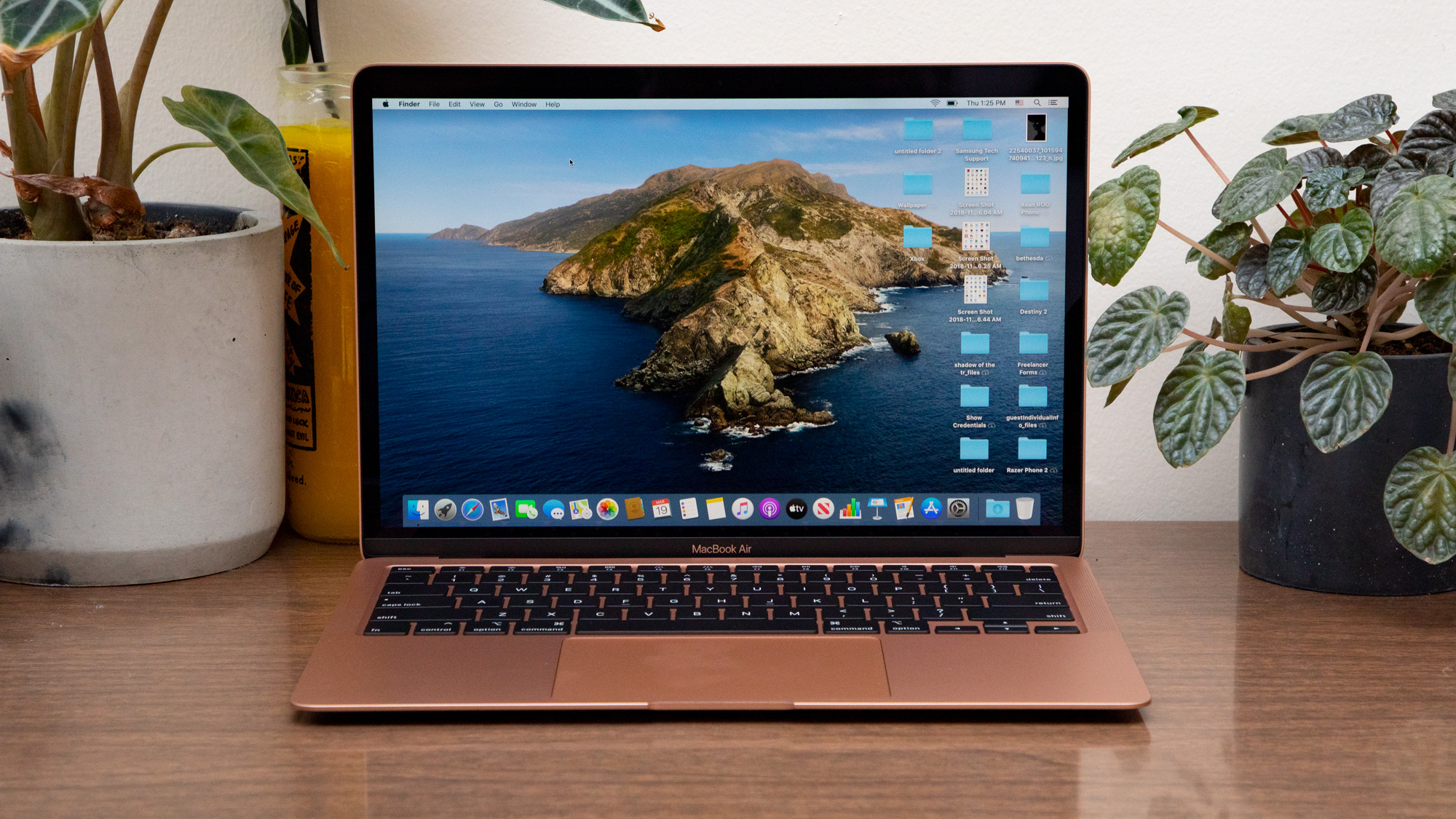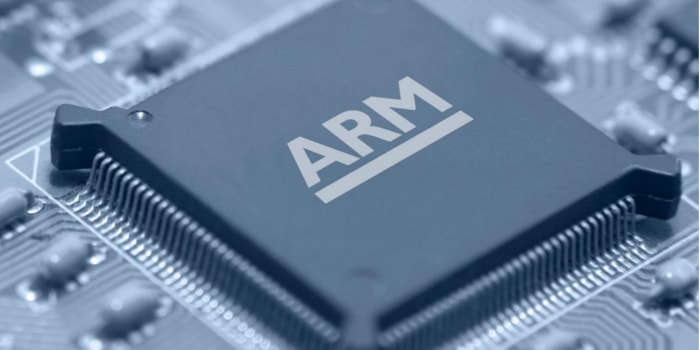ARM just gave us a huge reason to be excited about Apple Silicon MacBooks
ARM's new Cortex chip hints at the power Apple Silicon MacBook could have

Apple Silicon promises to deliver a new generation of Mac machines with custom Apple chips at their hearts, allowing the engineers at Cupertino to shake off a reliance on Intel processors.
But Apple isn’t going it alone, as it’s using ARM-based RISC instruction sets, and likely ARM chip designs, to make its own silicon slices. As such, Apple Silicon will see the debut of the first ARM-powered Macs, likely in the form of a MacBook Pro.
- The best laptops right now
- Save big with Black Friday laptop deals
- Plus: iPhone 12 Pro just destroyed Galaxy Note 20 Ultra in speed test
However, Apple isn’t the first tech company to try and take an operating system based on x86 architecture — the foundations of all Intel and AMD processors — and move to RISC architecture, which underpins pretty much all mobile chips. Microsoft has already tried with its Always Connected PC initiative, which runs Windows 10 on ARM-based custom Snapdragon chips from Qualcomm.
While Windows 10 on ARM does work, it’s not exactly a brilliant experience with app compatibility problems and lackluster performance. So there’s an undercurrent of concern Apple might run into the same pitfalls.
Apple’s tight control over its software ecosystem could see it overcome a lot of incompatibility issues. But there are still concerns about whether chips ultimately built on mobile technology will be able to deliver laptop-grade performance. Enter the ARM Cortex-A78C CPU.
Amping up ARM

This new ARM chip design brings in an octa-core processor with 8MB of cache, which for the uninitiated translates into a rather powerful slice of silicon.
Eight-core ARM-based chips are nothing new; the Snapdragon 865 Plus in the Samsung Galaxy Note 20 Ultra has eight CPU cores. But while this ARM chip is a new addition to the Cortex-A78 family, the ‘C’ at the end means it’s actually a more powerful chip design aimed at computers; we’re not sure if the C actually stands for ‘computer’ but we’ll roll with it.
Sign up to get the BEST of Tom's Guide direct to your inbox.
Get instant access to breaking news, the hottest reviews, great deals and helpful tips.
As such, ARM is positioning the Cortex-A78C as a CPU design for building chips that’ll power laptops. And this announcement comes mere days before Apple is set to hold its ‘One More Thing” event where we’re expecting to see the first Apple Silicon machines.
Now we’re not exactly big gambling people at Tom’s Guide, but we’d place a bet that the first bone fide Apple Silicon chips will be based around the Cortex-A78C.
It would make a lot of sense, as this Cortex chip design doesn't use the long-established big.LITTLE configuration of its fellow ARM chips. Using four ‘big’ cores to take care of demanding tasks and four ‘little’ cores to run less demanding apps, big.LITTLE in octa-core chips allowed for smartphones to balance performance and energy efficiency. But the Cortex-A78C uses all big cores, so promises configurations that will allow chipmakers to make powerful octa-core processors.
So that means we could be looking at a custom A-series chip built by Apple that comes with eight-cores to power a full macOS experience for MacBooks and even Mac desktops.
That should take care of processor work. But the Cortex-A78C can be configured with ARM’s Mali-G78 GPU, which can have up to 28 graphics processing cores. As such, ARM is touting the Cortex-A78 as a chip that'll be able to deliver gaming grunt as well as the horsepower for work.
We don’t expect that to mean next-gen MacBooks will be de facto gaming laptops, but they could offer more graphics power than current Macs with Intel processors do. That could result in better video rendering and the scope to run some decent 3D games.
We don’t know if Apple will indeed use the Cortex-A78C to underpin its own custom Mac chips. But it certainly has a lot of promise, and could yield impressive MacBooks that have shaken off the shackles of Intel.
Major MacBook making

Apple looks pretty confident that its ARM-based Macs will succeed, as according to Nikkei Asia’s sources, the Cupertino company has been asking its suppliers to create 2.5 million MacBooks with custom Apple Silicon chips.
Apparently, Apple plans to use its own chips in the equivalent of 20% of its total MacBook shipments, which numbered 12.6 million in 2019. That means there'll still be plenty of Intel-based MacBooks around, but Apple will certainly push Apple Silicon pretty hard.
And that’s pretty exciting. We’re expecting the first ARM-powered MacBook to come in the form of a 13-inch MacBook Pro, but we’re also hoping that it will see the return of the 12-inch MacBook.
Such a device could deliver a laptop that’s swaddled in Apple’s premium design but is more affordable thanks to the money saved not paying Intel for its chips; provided Apple passes on the relative savings to its customers. You could think of such a laptop as a MacBook SE, following in the footsteps of the iPhone SE 2020 and Apple Watch SE, offering a more affordable way to get into macOS.
That’s a pretty tantalizing prospect, and it would start to see Apple build out a system of more affordable devices that don’t compromise on performance or user experience. Of course, this is all speculative thinking on our part. But with Apple almost certainly set to reveal Apple Silicon devices on November 10, we’ve not got long to wait to see if this speculation bears fruit.
Roland Moore-Colyer a Managing Editor at Tom’s Guide with a focus on news, features and opinion articles. He often writes about gaming, phones, laptops and other bits of hardware; he’s also got an interest in cars. When not at his desk Roland can be found wandering around London, often with a look of curiosity on his face.

